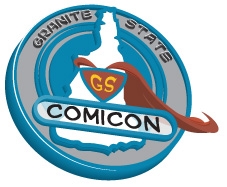![]()
I thought I’d write a somewhat more speculative article this week (with more potential for controversy, I suppose) about one of my favorite authors–Isaac Asimov. In particular, I’d like to look at whether the good Doctor might have gone one step beyond his acknowledged battle against the “Frankenstein Complex” in some of his writings.
Asimov’s considerable angst over the Frankenstein Complex (a term he is widely acknowledged to have coined) is well documented both in his stories (where Susan Calvin and the rest of the US Robots and Mechanical Men team frequently rail against it) and in his essays (e.g., “Machine and Robot” in Robot Visions, which is a nice sampling of Asimov’s robot stories and his non-fiction writings on the topic). Most sci-fi aficionados know that the “Three Laws of Robotics” were his literary creation designed to counter that complex. I won’t expound on them here other than to say they were his reactive response, a basis for allaying fears of robots. What is more interesting to me was what seems a more pro-active sub theme that I’ve never specifically seen addressed before–that he actually made his robots god-like.
Asimov himself hints at his feeling that robots should not only be useful tools that are not to be feared, but eventually ought to be admired and embraced as transcendent creatures. In “Machine and Robot” he ends his essay by saying:
So it may be that though we will hate and fear the machines, we will be supplanted anyway, and rightly so, for the intelligent machines to which we give birth may, better than we, carry on the striving to the goal of understanding and using the universe, climbing to heights we ourselves could never aspire to.
That vision of our creations being transcendent also comes through in some of his fiction. The earliest example of that is in his short story The Last Question, where Multivac and its many descendants (culminating in the Universal AC) are asked, essentially, whether it was possible to generally reverse entropy. Long after the last vestiges of mankind are gone the Universal AC ultimately has enough information to answer the question. With no one left to give the answer to, it decides that a demonstration is appropriate. [SPOILER ALERT!!!] The story ends with “And then there was light.”
Asimov’s toying with the idea of robots as higher order of being than humans is more fully developed through his character (and my namesake!) R. Daneel Olivaw. After a long period of association with humans Daneel formalizes a concept originally conjectured by Susan Calvin (in The Evitable Conflict) and pragmatically attempted by R. Giskard Reventlov (resulting in his “death”) into the Zeroth Law of Robotics (“A robot may not harm humanity, or, by inaction, allow humanity to come to harm.”)–seeing in himself an ability to do what humans cannot. He builds upon that in Foundation’s Edge and Foundation and Earth, where he admits to Golan Trevize that he’s been manipulating and shaping humanity for millenia, and had been key behind the force that drove the development of Psychohistory and the creation and growth of Gaia (a human society that essentially has the Ten Commandments hard wired in their psyche–at the cost of individuality). Both of these he saw as potential alternate routes for the preservation of humanity. There’s even a parallel to Christianity in Daneel’s giving humanity “free will” to decide which path they will follow (through the decision of Trevize on which of the two alternatives Daneel will impose). Even then, Daneel says he must fuse his mind with that of a Solarian child in order to “enable [him] to live long enough to establish Galaxia”–seeing himself as the necessary overarching intelligence to ensure that things go according to plan.
So, did Asimov decide to use Deus Ex Machina in its most literal sense in Universal AC and R Daneel Olivaw, believing that his positronic intelligences were a cleaner and better race than humans, or did he perhaps simply pattern the combination of his robot and Foundation literary universes on the underlying history of religion (much as he did in the original Foundation series, which was based on the rise and fall of the Roman Empire)? Only the good Doctor knows for sure, and we can’t ask him. What do you think?






Great article! I bet you guys will miss me this week, huh?
ROCCO
Thanks for the kind comment. And of course we’ll miss a cat who reads our blog! 🙂 I do hope you’re keeping Toni under control–and thanks for visiting us last week.
Great article! I don’t have enough Asimov reading under my belt to discuss anything in relation to the source material you discussed. I can only go by your article. Seems to me (and this is my opinion) that Asimov’s optimistic view of robotics and the future has influenced the robotics industry.
I wonder how he would feel about this PBS special on ‘Social Robots’ that aired last month:
http://www.pbs.org/wgbh/nova/tech/social-robots.html
Judging from your article (and what I read in the link on the Frankenstein complex), I think he’d be pleased.
Thanks Maynard. The book I referenced (Robot Visions) is probably a good place to get a general feel for Asimov’s work in that area. I know his hope was that his views would be taken into account in the development of robots, but there are some who say that it may not be technically feasible (or not “ethically acceptable”) to implement the laws in reality. I don’t want to post those here but can point you to them if you want. I’ll have a look at the NOVA program you linked; I hadn’t seen that yet.